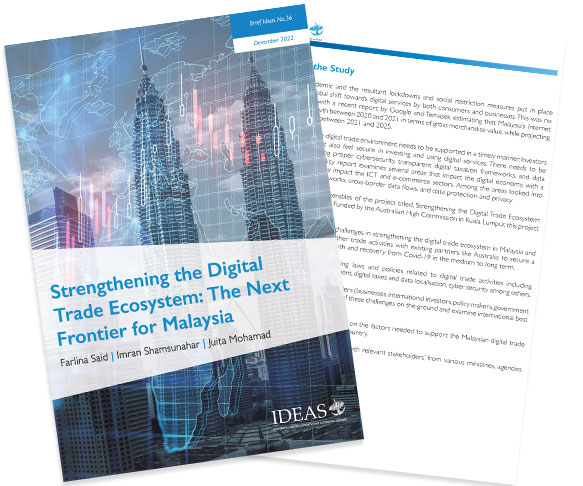Authors: Farlina Said, Imran Shamsunahar and Juita Mohamad
This policy report examines two components of the digital trade ecosystem; namely taxing the digital economy and cybersecurity components. Taxing the digital economy is not an easy feat by any standard. Recognising the tax-related challenges that the digital economy brings as well as the concurrent limitations of contemporary taxation methods, over the last five years the Malaysian government has either introduced or proposed a series of taxes directly or indirectly targeting the digital economy.
The immediate justifications for introducing or proposing such taxes have largely centred on i) ensuring Malaysia’s taxation framework remains adequate for the digital economy as well as ii) levelling the playing field for local businesses. Recently implemented or proposed taxes targeting the digital economy can be broken down into direct and indirect taxation. These taxes include Sales Tax (Amendment) Bill 2022), Service Tax on Digital Service and Tourism Tax (Amendment) Act 2021 among others.
In an engagement session with selected stakeholders in Malaysia, some have raised a variety of concerns about digital taxes either already proposed or introduced in Malaysia over the last few years. These concerns include confusion over definition and double taxation, lack of transparency in implementation plans and increasing cost of doing business.


